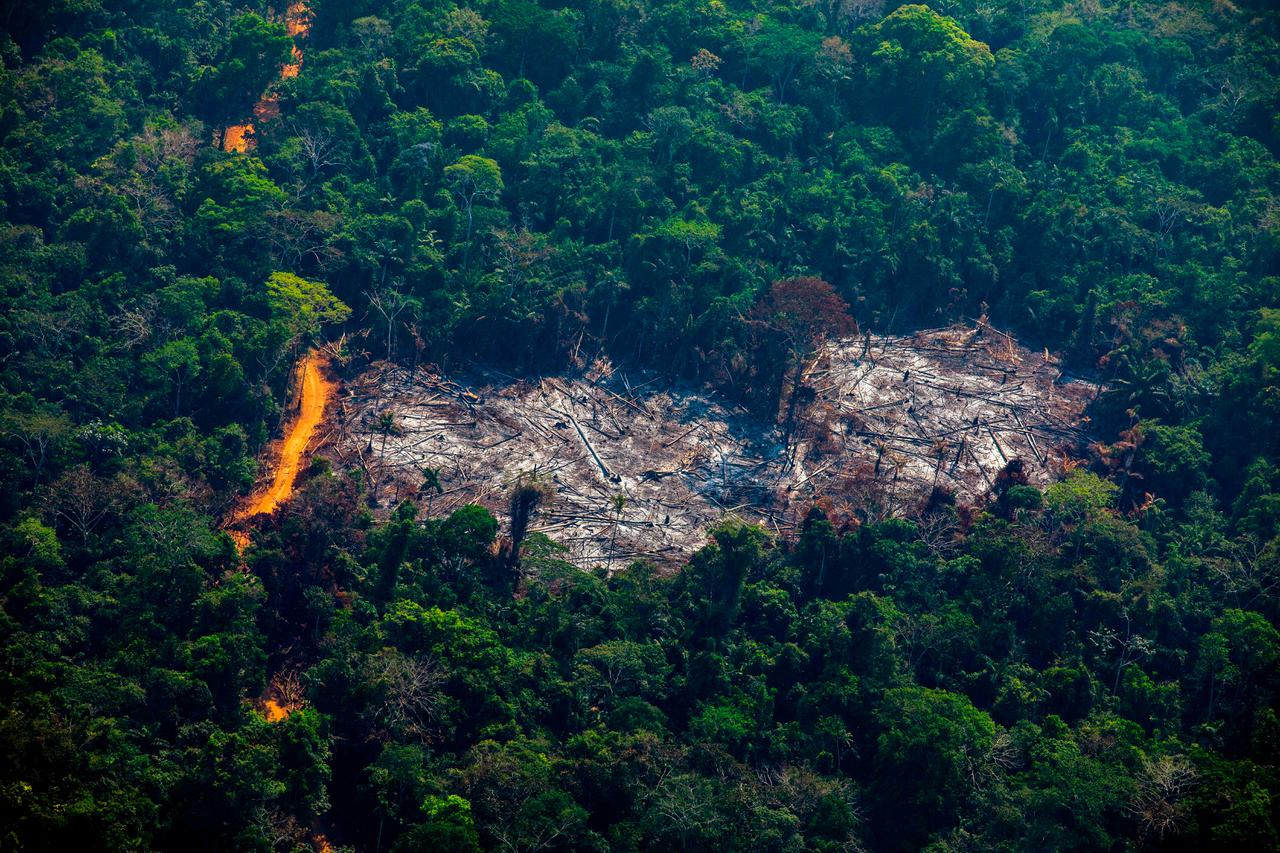
Big Meat, deforestation and the money trail
Last week we revealed that the Amazon is still being burnt to make way for soya to feed the world’s livestock, despite an agreement that was meant to prevent precisely this deforestation.
Three of the world’s biggest food businesses have bought soybeans from companies supplied by a farmer fined and sanctioned after destroying swathes of rainforest, our reporters discovered.
The contribution of agriculture and forestry to climate change is critical; it’s estimated the world’s food systems are responsible for more than a third of total man-made greenhouse gas emissions. Climate campaigners have been lobbying for the defunding of fossil fuel companies for years, but their attention is now turning increasingly to ‘Big Meat’.
Nordea Asset Management announced last year that its funds would divest holdings in JBS, the world’s biggest meat producer, over concerns including environmental issues.
This week, MPs in the UK Parliament will debate the proposed new Environment Bill, which would make it a legal requirement for UK businesses to show that the commodities they source, including soya, palm oil and beef, come from supply chains that are free from illegal deforestation. But the UK government has rejected calls for financial institutions to be covered by a similar mandatory obligation, to prevent their investments funding illegal deforestation.
The government has acknowledged the need to tackle the finance industry’s role in deforestation, but says that demonstrating illegal activity requires businesses to be closely involved in processing and delivering the agricultural commodities to the market.
This is a significant gap in the legislation. As we revealed last year, UK banks and finance houses provided more than $2bn in financial backing in recent years to Brazilian beef companies linked to Amazon deforestation. Decisions made by financial institutions can act as a powerful lever to persuade companies to change their behaviour.
Research by the supply chain initiative Trase has linked the export supply chains of JBS, Marfrig and Minerva, the three big meatpackers in Brazil, to up to 500 sq km of deforestation a year. According to the World Resources Institute, the destruction of tropical forests accelerated in 2020, even as demand for agricultural commodities slowed due to the pandemic.
In the run-up to the 26th UN Climate Summit (COP26), to be held in Glasgow in November, our reporting will continue to focus on the need to protect forests from the expansion of agriculture and the role played by financial institutions in driving environmental destruction.
Our latest Amazon investigation was carried out in partnership with Unearthed, Repórter Brasil and The Guardian, and the story was covered by the Daily Climate Show on Sky News, as well as UOL, the biggest Portuguese-language website, Business Green and The Hill.
Make change possible
Investigative journalism is vital for democracy. Help us to expose injustice and spark change
Click here to support us



